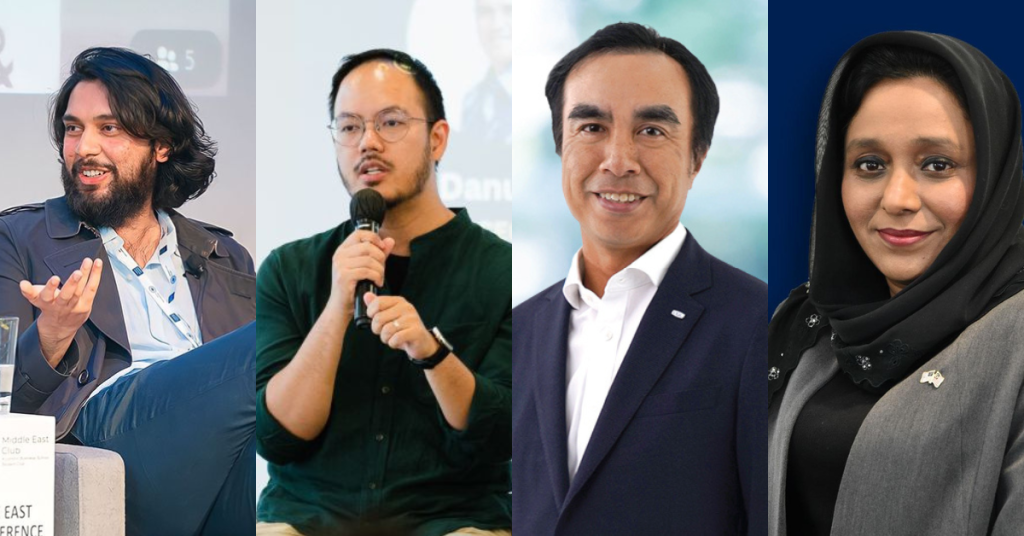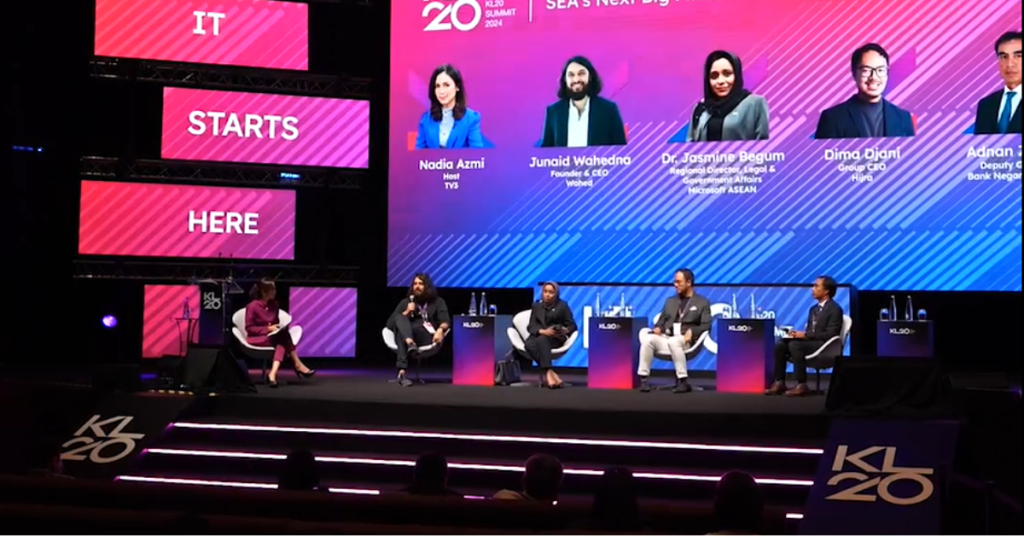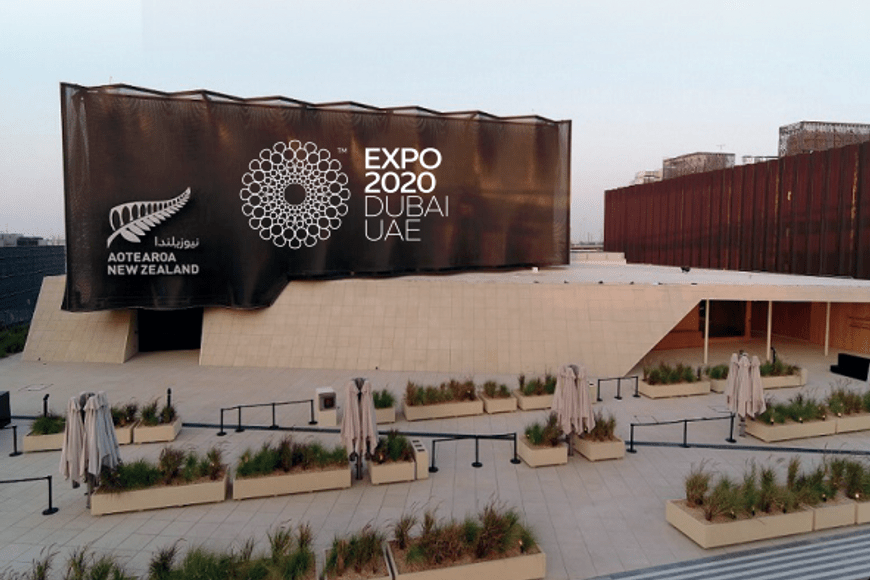Islamic fintech isn’t just for Muslims, here’s why M’sian consumers & startups should tap in
Malaysia is the third largest Islamic finance market with over 15 Islamic fintech startups based here. What is the industry's future here?

Malaysia is the third largest Islamic finance market after Iran and Saudi Arabia. Why does this matter, you may ask?
Because the Islamic finance industry has been expanding rapidly over the past decade. Global Finance Magazine reported earlier this year that the industry has been growing about 10% to 12% annually. This growth is more advanced compared to its conventional counterparts.
Today, shariah-compliant financial assets are estimated roughly at US$2.5 trillion covering bank and non-banking financial institutions, capital markets, money markets, and insurance.
Despite the industry being spread over more than 80 countries, the bulk of it is concentrated in very few markets with Malaysia being one of them.
In other words, we stand to gain tremendously from our position as a key global player in the landscape. Some benefits are:
Economic growth by attracting investment and fostering business activities Financial inclusion to serve a broader segment of the population, and Enhancement of international reputation which could strengthen economic tiesBut what role have we been playing in the market so far and where do we go from here?
We’re no experts in the field but we picked up some notable points from a panel session at the recent KL20 Summit. TV3 host Nadia Azmi was in charge of moderating and picking the brains of those actually in the Islamic finance industry for answers:
Junaid Wahedna, founder and CEO of Wahed (an American online halal investing platform), Dr. Jasmine Begum, Regional Director of Legal, Corporate & Government Affairs for ASEAN at Microsoft, Dima Djani, Group CEO of Hijra (an Indonesian fintech firm), and Adnan Zaylani, Deputy Governor at Bank Negara Malaysia (BNM). (From left) Junaid Wahedna, Dima Djani, Adnan Zaylani, and Dr. Jasmine Begum / Image Credit: Junaid Wahedna, Dima Djani, Credit Guarantee Corporation, and Dr. Jasmine Begum
(From left) Junaid Wahedna, Dima Djani, Adnan Zaylani, and Dr. Jasmine Begum / Image Credit: Junaid Wahedna, Dima Djani, Credit Guarantee Corporation, and Dr. Jasmine BegumIt’s not like conventional fintech
Capital Markets Malaysia defines fintech as the application of disruptive technology to traditional financial services. This includes digital investment management, equity crowdfunding, peer-to-peer financing, and digital asset exchanges. Combine those with Islamic principles and you’ll get Islamic fintech.
The concept itself doesn’t change with the only difference being that Islamic fintech observes shariah guidelines. For context, shariah is the Islamic law branch dealing with transactions in the economy.
At its core lies the significance of shared risk in capital raising and the avoidance of riba (interest) and gharar (uncertainty).
Junaid Wahed explained this well by stating that it’s more asset-based, not liability-based. Companies don’t lend money at interest and instead participate in the business venture as a partner, sharing both profits and losses.
“We (Wahed) try to solve every single financial product without doing any lending but instead use equity. [For example], instead of a mortgage, it’s an investment,” the CEO of Wahed elaborated. “Lending is risk-based and creates inequality.”
This approach protects consumers from the risk of incurring high levels of debt. Contracts also must be transparent with the terms and conditions clearly defined to avoid ambiguity.
Together, these help to promote better financial stability to all parties involved. It also allows Muslims to make responsible financial decisions without compromising on their values and beliefs.
Serving the underserved market
That said, you don’t have to practise the faith to be a consumer of Islamic fintech. This is great news for a number of reasons such as its ready integration of ESG (environmental, social, governance) frameworks.
Islamic finance in general is more sustainable and achieves at least half of the United Nations’ Sustainable Development Goals (SDG), such as reducing poverty (SDG 1) and spurring broader economic growth (SDG 8 and SDG 9).
A large part of this is due to its enhancement on financial inclusion that overlooks social standing. Dima Djani shared that this provides a level playing field for conventional finances and the potential to utilise tech in the field is immense.
Communities are able to grow and climb their way out of social inequality, making it a suitable platform “to serve the underserved”, as Nadia put it.
As for how Malaysia benefits from this, Dr. Jasmine said that we have the ideal marketplace thanks to our easy entry model and strong entrepreneurial ecosystem support.
Unlike other nations, we have various initiatives to foster innovation and business development. Both government and private entities actively promote the industry through funding support, mentorship programmes, and accelerators.
 Image Credit: KL20 Summit
Image Credit: KL20 SummitA good ecosystem alone isn’t enough
But more than that, we already have a well-established Islamic finance ecosystem and market demand.
The International Federation of Accountants shared that part of this is due to the constantly upgraded regulatory infrastructure. This is overseen by BNM and the Securities Commission Malaysia.
Ethis, a local equity platform for investors, stated that the mature Islamic finance ecosystem helps draw Islamic fintech players to Malaysia. Fintech players can depend on various shariah advisory firms to vet products and services, while Islamic banks can provide comprehensive Islamic finance services.
However, the panellists noted that there are still improvements to be made to ensure the industry flourishes even more.
“Technology is moving so fast, policies that are made [with] five-year and ten-year master plans will not be able to catch up. We need agile policies that will allow for innovation and not impede it,” Dr. Jasmine remarked.
Adnan Zaylani from BNM added that regulatory frameworks are there to protect consumers and businesses, which can sometimes come with trade-offs like speed. But the government institution has been looking to simplify processes like eligibility assessments to make it easier for Islamic fintech startups.
Dima also chimed in, sharing that a challenge he’s been facing as a digital banking player is accommodating to new demands in a regulated industry. For example, consumers of Hijra are requesting tech for QR payments, but it takes time to add new features like this.
So both the industry and consumers need to have realistic growth expectations.
More education and awareness is needed
According to the Global Islamic Fintech Report 2022, the Islamic fintech market size is anticipated to reach US$179 billion by 2026 at a compounded annual growth rate (CAGR) of 17.9%. In comparison, the overall global fintech industry is expected to only develop at a CAGR of 13.5% over the same time period.
Malaysia currently hosts headquarters for over 15 Islamic fintech companies, including du-it, MadCash, Koha, Kestrl, and Wahed. Many more are probably keen on tapping into this emerging market while it’s still young.
That said, a concern is whether the opportunities to tap into the Islamic industry is exclusively for Muslims. This didn’t get brought up during the summit, nor were we able to easily find answers online.
Regardless, though, you’ll need a deep understanding of Islamic finance principles and compliance requirements to do this. Another challenge would be gaining the trust of of Muslim users, if the founder isn’t a Muslim themselves.
In any case, we believe there’s still a lot more education and awareness needed in the industry to really propel it forward.
Read articles we’ve written about Malaysian startups here.Featured Image Credit: Vulcan Post

 AbJimroe
AbJimroe 




























![Run An Ecommerce SEO Audit in 4 Stages [+ Free Workbook]](https://api.backlinko.com/app/uploads/2025/06/ecommerce-seo-audit-featured-image.png)

.jpeg?trim=0,0,0,0&width=1200&height=800&crop=1200:800)
